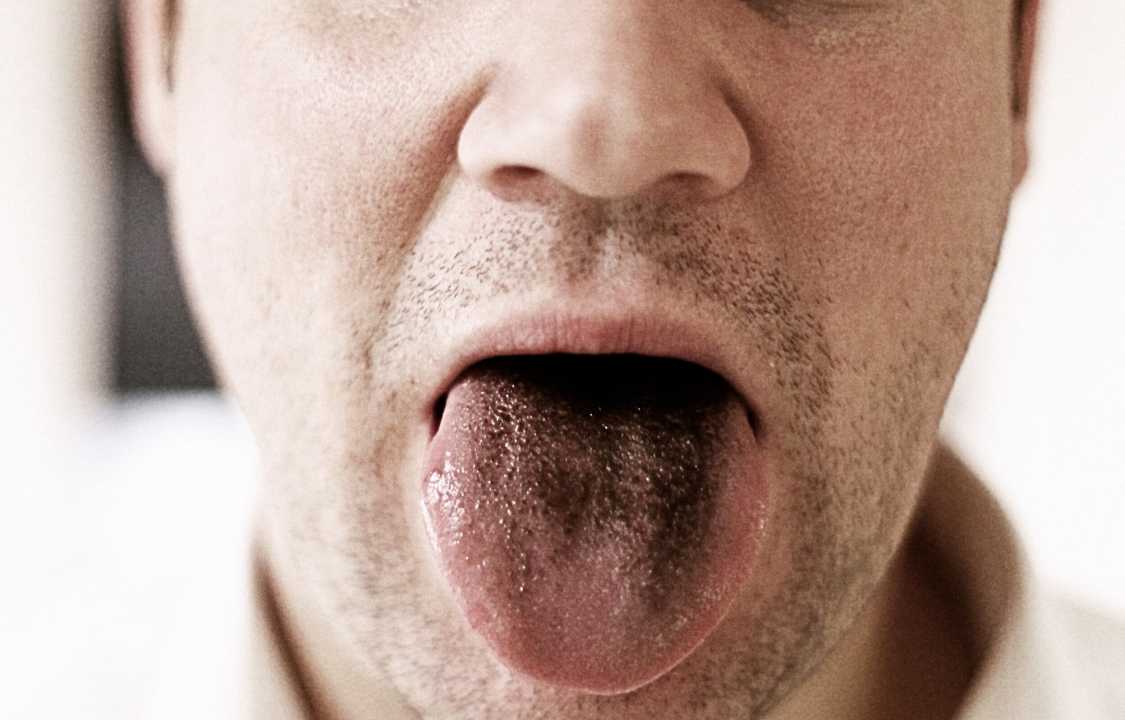Insight, Oral Health
Black Hairy Tongue
The term “black hairy tongue” may sound alarming, conjuring images of severe medical conditions, but rest assured, this condition is relatively harmless. Black hairy tongue is characterized by the appearance of an elongated, discolored tongue, resulting from bacterial or fungal overgrowth in the mouth. However, there’s no need for undue concern, as this condition can be effectively managed and treated with good old-fashioned oral hygiene practices.
Understanding the Causes of Black Hairy Tongue
The primary cause of black hairy tongue is an overabundance of bacteria or yeast in the oral cavity. This bacterial overgrowth specifically occurs on tiny projections called papillae, which naturally reside on the surface of the tongue. Under normal circumstances, these papillae shed regularly. However, when bacteria or yeast excessively accumulate on them, they start to grow and elongate, forming hair-like projections. In some instances, these papillae can grow up to 15 times their usual length.
Normally, the papillae exhibit a pinkish-white color. Yet, as they lengthen and grow, pigments from food, beverages, and potentially the bacteria or yeast themselves get trapped within the papillae, leading to a discoloration of the tongue. This discoloration predominantly manifests as black, giving rise to the name “black hairy tongue.” Nevertheless, the tongue can take on various colors, including brown, yellow, green, or other shades.
Several factors and conditions can increase the likelihood of developing black hairy tongue, such as:
1. Poor Oral Hygiene: Inadequate oral care can encourage bacterial growth in the mouth and on the tongue.
2. Tobacco Smoking: Smoking tobacco contributes to the accumulation of staining and contributes to the development of black hairy tongue.
3. High Consumption of Coffee or Tea: Frequent consumption of these beverages can lead to discoloration of the papillae.
4. Antibiotic Use: Antibiotics may disrupt the normal balance of oral bacteria, predisposing individuals to black hairy tongue.
5. Dehydration: Inadequate hydration can exacerbate the condition by reducing the cleansing effect of saliva.
6. Bismuth-Containing Medications: Certain medications containing bismuth, like Pepto-Bismol for upset stomach, can contribute to tongue discoloration.
7. Insufficient Saliva Production: Reduced saliva production can affect the mouth’s natural cleaning mechanism, promoting bacterial overgrowth.
8. Mouthwash with Peroxide, Witch Hazel, or Menthol: Regular use of mouthwash containing these ingredients may contribute to the development of black hairy tongue.
9. Radiation Therapy to the Head and Neck: Patients undergoing radiation therapy in the head and neck area may experience this condition as a side effect.
Black hairy tongue has a higher prevalence among men, individuals who use intravenous drugs, and those who are HIV-positive.
Identifying Symptoms and Complications
In most cases, individuals with black hairy tongue do not experience any significant symptoms or discomfort, and the condition is primarily a cosmetic concern. However, in some instances, the excessive growth of the yeast Candida albicans on the tongue’s surface can lead to an uncomfortable burning sensation, known as glossopyrosis, which can be distressing for those affected. Some individuals may also report a tickling sensation in the roof of the mouth, a metallic taste in their mouth, or occasional bouts of nausea, which can be attributed to the presence of the overgrown papillae.
In more severe cases, the condition may trigger a persistent and bothersome gagging sensation, making eating and drinking more challenging for those affected. This can have a notable impact on their daily lives and eating habits. Additionally, food particles and debris trapped within the elongated papillae can result in bad breath, a concern that can be distressing both for the individuals themselves and those in close proximity to them. As such, while black hairy tongue is usually benign, the presence of associated symptoms should not be ignored, and individuals experiencing discomfort or distress should seek appropriate evaluation and treatment.
Effective Management and Treatment
Practicing excellent oral hygiene remains the most effective approach to address black hairy tongue. Here are some crucial steps to manage this condition:
1. Regular Brushing: Brush your teeth gently twice a day using a soft toothbrush. It is also important to brush your tongue to remove bacteria and debris.
2. Tongue Scraper: Consider using a tongue scraper, a specialized tool that effectively cleans the surface of the tongue.
3. Hydration: Stay adequately hydrated throughout the day to maintain a moist mouth environment that discourages bacterial growth.
4. Smoking Cessation: If you are a smoker, quitting smoking is beneficial for improving oral health and reducing the risk of black hairy tongue.
5. Dietary Choices: Incorporate roughage into your diet, as softer foods may not efficiently clean the tongue’s surface.
If the condition of black hairy tongue persists and does not show any signs of improvement with home remedies and adjustments, it is strongly advisable to seek professional medical attention from your doctor or dentist. Medical professionals can provide a more thorough evaluation and may prescribe antibiotics or antifungal drugs to combat the overgrowth of bacteria or yeast in the mouth, addressing the root cause of the issue. In certain instances, topical medications like tretinoin (Retin-A) may be recommended as part of a treatment regimen to encourage normal papillae shedding and renewal.
As a last resort, if the condition remains unresponsive to other treatments, surgical intervention may be considered. This intervention typically involves the removal of the elongated papillae through procedures such as laser or electrosurgery. While surgery is a less common approach, it can be an effective option for individuals with persistent and severe cases of black hairy tongue.
In conclusion, while black hairy tongue may sound alarming, it is usually a benign condition that results from bacterial or yeast overgrowth in the mouth. By adopting proper oral hygiene practices and addressing underlying risk factors, this condition can be effectively managed and treated. The key to optimal oral health is recognizing the importance of regular oral care, maintaining a healthy lifestyle, and seeking professional guidance when needed to ensure that any oral health concerns are addressed promptly and effectively.

